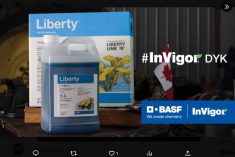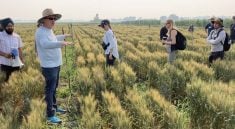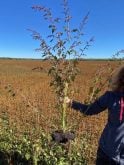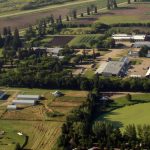Keystone Agricultural Producers (KAP) members voted to ask the Canadian Food Inspection Agency to get Palmer amaranth added to its list of noxious weeds during the organization’s AGM on January 25.
The weed made its first confirmed appearance in Manitoba this summer. It is widespread in North Dakota and much of the United States.
Palmer amaranth is the common name for Amaranthus Palmeri, a type of pigweed that has been called one of the largest weed problems in the U.S. According to research out of the Iowa State University, it can drop soybean production by 79 per cent.
Read Also
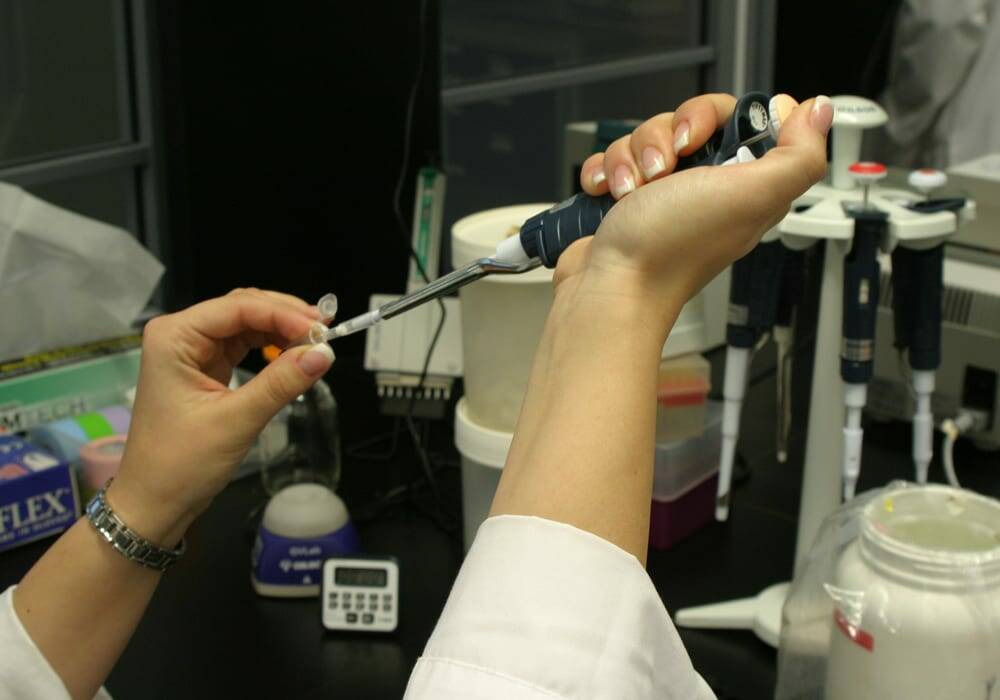
Ship’s turning for gene-edited crops
More and more countries have decided that gene-edited crops will be treated the same as conventional plant breeding.
Each plant, which can grow up to six or eight feet tall can produce up to a million seeds. It’s also known to resist herbicides, including glyphosate.
The resolution, brought forward by District 10 representative Paul Gregory, would see KAP lobby the CFIA to have Palmer amaranth listed as a prohibited noxious weed seed under the Weed Seeds Order.
The order is part of the federal Seeds Act, which regulates quality standards for seed sold in, imported to, or exported from Canada.
If listed as a prohibited noxious weed, seed for sale, import, or export could not contain any Palmer amaranth seeds.
“Here we have a super-noxious weed at our border, and we should be testing all seeds coming in,” Gregory told the Co-operator.
Gregory, who owns Interlake Forage Seeds, said keeping Palmer amaranth out is of particular concern because it’s hard to separate from forage seeds.
“If you’re a forage seed producer and you have this weed in the fields, you’re not going to sell seed to the States,” he said.
Many U.S. states prohibit the sale of seed mixes containing Palmer amaranth, according to a USDA fact sheet.
Palmer amaranth seeds are also nearly identical to the less destructive redroot pigweed seeds, said Glen Green, lab manager at Integrity Seed Lab.
Differentiating it requires a PCR test, which involves crushing the seed and doing a genetic comparison, Green said.
Palmer amaranth is already on Manitoba’s list of noxious weeds. It’s listed as a Tier 1 noxious weed, which means any plants found must be destroyed, the Noxious Weeds Act says.
“We can’t allow them to take hold here,” said provincial weed specialist Kim Brown-Livingston. “It’s a frightening scenario when these weeds get here and they start infesting our cropland.”
She said there’s been some concern that it has moved in the U.S. via cover crop seed mixes.
It has also been documented moving in soybean screenings in the U.S., which were fed to livestock. The tiny, hard seeds can survive an animal’s digestive tract and still be viable, said Brown-Livingston.
Palmer amaranth seeds can also move by being picked up with dirt and carried by vehicles or machinery.
She advised producers to keep an eye on pigweeds on their land. If one looks a bit different, or isn’t being controlled in the crop, it may not be redroot pigweed.
“These weeds are right on our doorstep. We have to be vigilant,” she said.




